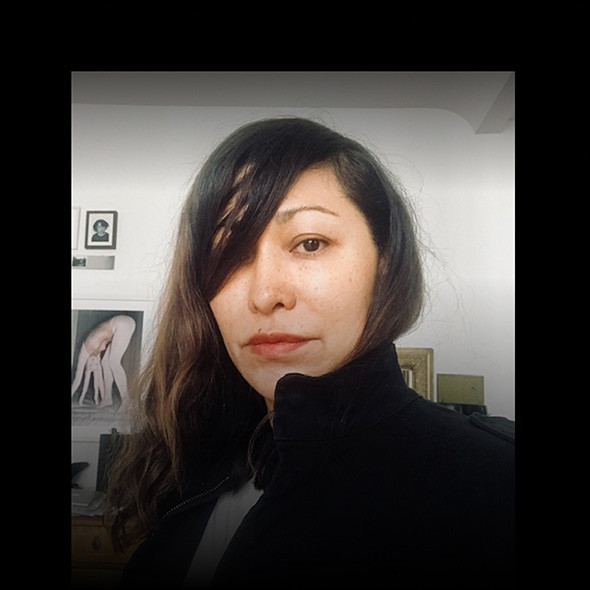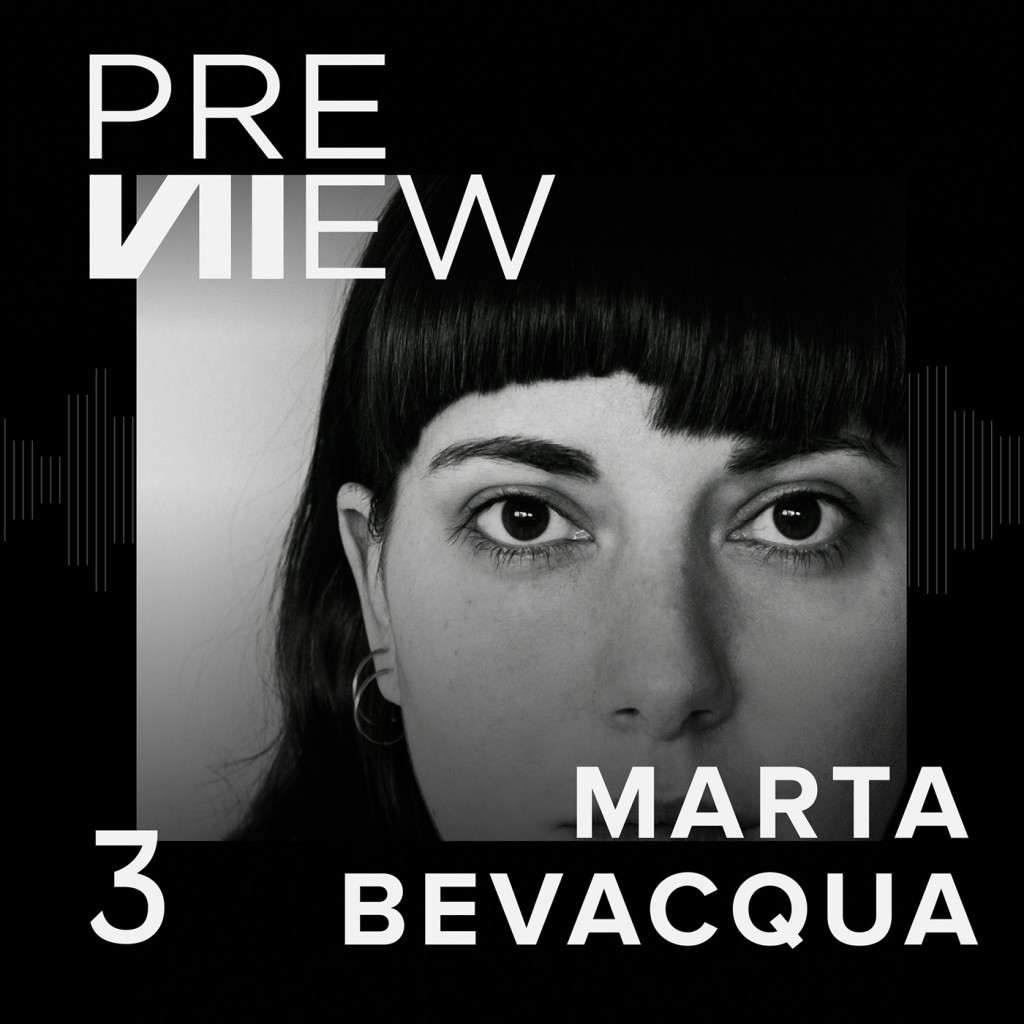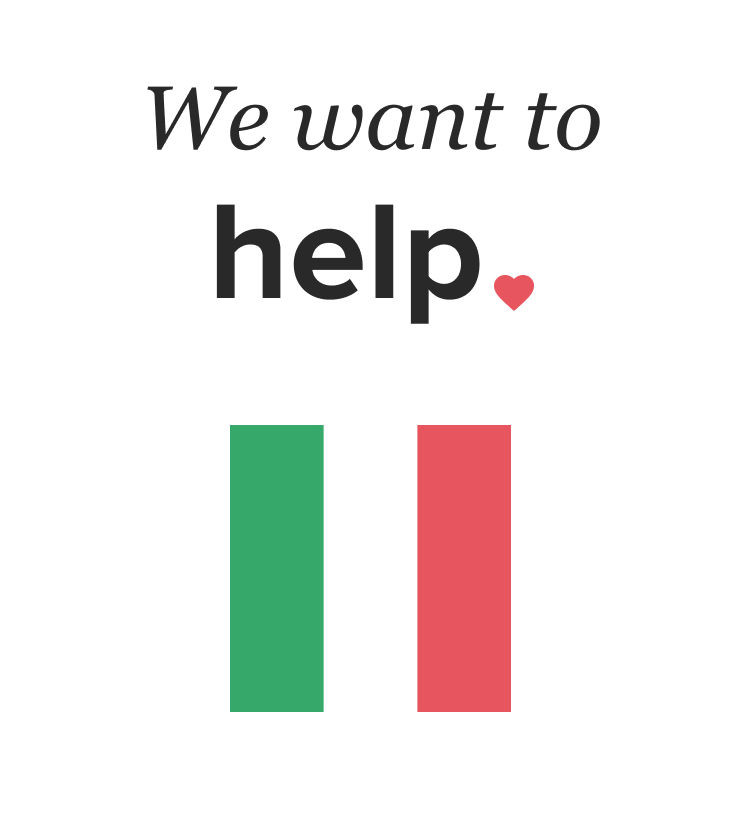Podcast
Kozva Rigaud
25 min talk
Kozva Rigaud is quite the cosmopolite: born in Peru, she grew up in Austria and studied in Salzburg and New York. Today, she’s based in Berlin, from where the former dancer is running photographers’ agency Shotview, which celebrates its 20th birthday this year. We spoke with Kozva about how the current Corona crisis is affecting the photography business, her successful two-decade journey with Shotview, and how to always keep your head above water.
Hi Kozva!
Hi Sarah! Thanks so much for having me.
First, let’s make clear – this is a long distance interview, you’re in Berlin, I’m in Brussels – we’re not sitting in a room together and spreading germs, in case anyone is wondering!
The Coronavirus pandemic is hitting all industries hard, and the photography business is no exception. What’s the situation like for you at the moment?
First of all I hope that everybody is safe out there and that people are staying motivated. As all creative businesses and many other businesses, we are of course also affected by the Corona situation. I am currently juggling between private life (because I have two kids, and have to do homework with them) and the work with the agency; home office. We decided to keep the service running. Our artists are working in different ways now. Every minute we have to be very flexible. There are a lot of changes happening, often with very short notice. But we’re still working, from home, and I’m trying to do my best juggling between these two worlds, the private and the business.
When you say you have to adapt things, I could imagine shoots are completely cancelled right now. What can photographers still do?
Yes, most clients decided to postpone and cancel shoots. We really want to start shooting right away when this is all over, so we’re still working on the concepts together, and providing feedback, new solutions and ideas to our clients. So when the situation has calmed down, and everybody comes back to their daily routines, we will be more than ready. Some clients cancelled completely though, and said we have to wait and talk about a new date at a later point.
With many photographers being freelancers, they’re sometimes in a bit of a precarious situation. What’s the general atmosphere among them? Are they worried?
Yes, of course. All of them are self-employed. We’re very close to our artists and communicate day and night with them. We’re all thinking about new strategies, also about how to be close to our clients, and bring a perspective to the crisis. We’re constantly connected via Skype, Email,… We’re exchanging a lot: worries, thoughts, new ideas; and we try to use the time as well as possible.
Are you scared about your own business? Is this endangering your company, or do you think you can just wait it out and then take up again and everything will be fine?
That’s what we hope for, of course. Nobody knows how long it will take. Or if it happens again. If it’s only two or three months, then I think we can find a good solution. But if it takes half a year or longer, it’d be really terrible for everybody. We’re trying to be positive and we’re trying to be more aware of things, and the way we work. More efficient. But we want to stay calm and hope that everything will be ok after two or three months maximum.
We have seen so many ideas in the creative realm, of how to connect: bands are live streaming concerts and selling their merchandising, writers do book readings online…are there any creative solutions for photographers?
Well, the funny thing is: when my daughter was born in 2017, I was always offering digital meetings to my clients, because I wasn’t able to fly. I would have loved to fly to Munich, to Paris, to Milano, but I had my little daughter to take care of. I was always doing video conferences to stay close with my clients. I think that this kind of communication will definitely be an option after Corona. People will ask themselves, why should I fly if I can meet the client digitally and via live streaming? I think that’s something that will change in our business, and in all businesses, in general. About your question: we are working on tutorials and other new things, and many photographers work on personal projects. We’re working with clients, doing consultancy, and generally try to be creative with our time so that we can carry out the on-site shootings right away. We’re trying to be flexible about this.

So some positive things might actually come out of this: less flights would be good for the climate.
Let’s talk a bit about Shotview before Corona: Why did you found a photographer’s agency at all? What was your first contact with the photography world?
Originally, I was a dancer, working with companies in Europe and New York, where I lived for three years. After that, back in Europe, everything I did was related to fashion. I have always been fascinated by clothes, fashion, images, visuals. I quit modern dance and started studying marketing and economics, just because I decided to change my career. I always had the feeling that economy, art and fashion are close. They are not as separate as people were thinking 20 years ago. So I was trying to figure out, how could we convince clients to trust people to be very creative, and how could creatives translate their wishes to the creative industries, to the economic world? I got obsessed with this question. When I finished my second profession, I applied at photo agencies, to work on feature stories, in the journalism world. I got to work with Magnum photographers, trying to build stories with them, and I was so fascinated. My job was to print these amazing photos, to edit them, to curate them into magazines, such as Spiegel, Stern, New York Times, Vanity Fair. I also worked in TV. Everything I did had to do with photography. I decided I want to bring all my experiences together. And as I was an artist before, I know the worries artists have. The idea was to bring together highly creative people in the creative industries, and that’s why I decided to launch Shotview, with a community of artists who are all very creative. We are working from scratch. It was fascinating to start out with artists like Erwin Wurm, one of the biggest contemporary artists worldwide. He believed in my idea and said hey, I want to try.
Was it hard in the beginning? How did you make it work? What’s your secret that you’re still around today?
I worked really hard. I was based in Vienna, which is a beautiful city, but it’s of course not one of the big fashion and photography cities like New York or Paris or London. Every week I had to fly to different cities to find clients. At this time, Austria, Switzerland and Germany were a little behind in this market. I will never forget when I went to a very reputed ad agency in Hamburg with the portfolio of one of my photographers that consisted of black-and-white images of male, hairy breasts. I presented him as a beauty photographer, and all the art buyers looked at my like I was crazy. I told them ‘you have to believe me; he is one of the best beauty photographers ever. You have to really see the image, look at the perfection of this skin, the hair…’ They still looked at me like I was crazy, but after three months, they booked me for a Wella advertising job. It was pretty huge, with 12 models, a one-week shoot. They made me sign lots of papers before to be safe. I think they were scared that I wouldn’t bring the results.
It was hard, but if you have ambition, and a dream, then you have to go for it. I think this is part of my background, and maybe my culture. In South America, you have to really fight for your dreams and you never give up. Plus, you’re allowed to be flexible and adapt. When something is not working, you change it. They’re not scared of changing rules or paths or careers like in other cultures. In Germany, when you’re a lawyer, you cannot be a restaurant owner. In my culture you have to survive, you have a survival instinct, and you are flexible. It’s like when you’re in water, you have to keep moving your arms to not to go down.
You’ve been around for quite a while now with Shotview. Since you started, what would you say have been the biggest changes?
Yes, I’ve now been twenty years with the agency. It’s incredible! The big revolution, for all agents out there, I think, was the digitalization. Before we were shooting on film, analogue, and I remember for some photographers it was very difficult to change. And we had to find the right balance when it comes to prices and timing. The second big change was the power of the fashion stylist. In the past, photographers were very powerful, but then the fashion directors took over. Now we’re in the third phase where we have a very nice balance again. And then there was the film revolution as well, meaning that photographers now also make films. They’re always changing and trying to find new ways. We have to adapt, be flexible, and make the best of it. We have to understand the necessities of the client on the one hand, but also find the right balance: how can I offer my artists security and guarantee them a good rate in appealing working conditions. It is always a challenge to understand both worlds.
You’re the bridge between both sides. You probably have to be a bit of a diplomat?
I always say I’m like a doctor. As an agent, you have to be a coach. You have to provide guidance to your artists, say where we want to go, and we need to have a very healthy attitude. You build really strong and close relationships, and we have to trust each other. And there has to be a give and take – otherwise there’s a problem. This is true for clients as well. There are different levels of relationships, close, middle, and distant. This is important to recognize. At the end, we have to understand that a creative business has a lot of human components. We have to be very flexible and close at the same time.
How many photographers do you take on a year? Is there a certain number? Where do you find them and are there any criteria?
I don’t have any number I take per year. For me it’s an organic growth. You just feel it when you see a picture, a magazine, an exhibition, or an image on the Internet. When you feel connected to the photography. Sometimes, photographers approach us, and sometimes we approach them. The images have to touch me, but it’s also important who is behind the camera. I need to feel that I will be able to really work closely with this person. I don’t have any criteria. I like it when people really want something, when they’re hungry for things. Back in the days when I started my business, I wanted to do everything, and all I had was a laptop and a phone, nothing else. I love when I see that same spirit in people, who are ready to rock, ready to jump into the arena. But at the same time, I love fairness. I don’t like people who try to get ahead, and it doesn’t matter how. I want to have fair, good relations, and see the people I work with in person a few times. And I really love respect more than anything. Respect is the most important thing in my life. If there is no respect, then it’s very difficult for me to keep working with someone.
So, be a fighter, but a fair one…
My mom always told me, you have to give twice of what you get back; you always have to give more than you can. I’m a fighter, yes, and I love a photographer who has a vision, and ambition. Someone who really wants to move something. Our wishes and visions are the strongest energy humans have. Without that, it’s difficult to do things. This is what I take into consideration when I meet somebody. I need to feel that there is something there, the photographer wants to communicate, has a vision, has a healthy attitude, and we can run together. That’s motivating. And of course, I have to like the visual language.
Do you have any advice for photographers who are just starting out, who are dreaming of working for magazines or big brands one day?
I think it’s very difficult to tell a photographer not to look too much around and be genuine and real, because there are just so many pictures everywhere, on Instagram, everywhere. You kind of have to close your eyes. If you want to show your work, just do it! You have to have a strong vision, and try to fight for your style, for your dream, for what you want to show. Don’t feel confused when you see different possible directions, just be real and show it. And you should surround yourself with people who work well with you, who can provide good advice, or be a partner to you, a stylist for example, or good assistants, good retouchers. Build your community, build your friends. And try to find your fans, in the sense that they can really feel your photography and respect your work.
I think that’s the best you can do. And if you feel that you’re ready, then of course look for an agent, contact magazines, and try to show your work in different ways. Never give up because someone gives you a negative answer or doesn’t reply. Today, this doesn’t mean anything. Just keep going, keep on trying.
Kozva Rigaud was interviewed by Sarah Schug
Want more? Listen to one of our insightful fashion photography podcasts.

Podcast
Marta Bevacqua
We had a chat with Italian-born photographer Marta Bevacqua (31), who exchanged her native Rome for Paris about six years ago. Since then, she’s shot the video clip for French singer Benjamin Biolay’s latest single, and has collaborated with brands such as Vichy, Dior and Samsung. Her work has been published in Glamour, Marie Claire, Elle, and others. Here, Marta opens up about getting used to shoot under the new Corona restrictions, why she almost exclusively photographs women, and how to make it in Paris.
READ MORE
COVID-19
We want to help
From today, PREVIIEW will be donating 50% of all member fees to EMERGENCY, a non-profit organization helping Italian hospitals.
READ MORE
